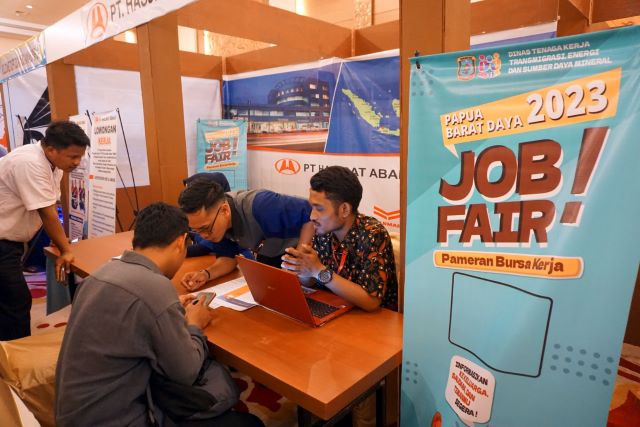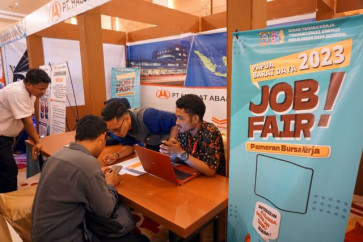Popular Reads
Top Results
Can't find what you're looking for?
View all search resultsPopular Reads
Top Results
Can't find what you're looking for?
View all search resultsBringing social investment to the forefront
Indonesia needs to reform its welfare and education policies toward improving its human resource quality so it can capitalize on its demographic bonus.
Change text size
Gift Premium Articles
to Anyone
I
ndonesia is currently in the midst of transitioning from a growth-oriented focus. However, what will replace it is highly uncertain.
What is certain is an increase in macroeconomic stresses due to financial instability, unpredictable international trade prospects and the transformation of industrial structures, translating to weaker economic performance and narrower job opportunities in the period ahead.
Younger generations already feel the effects of this situation, as they find it difficult to find jobs. According to data from the World Bank, Indonesia's youth unemployment rate reached 16 percent in 2021, the second highest in Southeast Asia.
If this situation drags on, the repercussions could be catastrophic. There is a possibility that the demographic boon we are currently relying on for a prosperous Indonesia will turn into a demographic curse, especially as our population has started to age, calling for a greater portion of the state budget to protect them from old-age risk.
Many reports have linked the recent unemployment trend among youths to the digital skills gap or industry's inability to find professionals with technology-based competencies, such as cloud computing, data analysis and operations. Another major problem relates to non-technological competencies, such as leadership, research, marketing, project management and analytical skills, which some youths also do not master.
This skills gap is exacerbated by the shallow literacy level of Indonesia’s human resources. A 2023 UNESCO report ranked the country second from the bottom in literacy with 0.001 percent, meaning that only one in 1,000 Indonesians has a reading preference.
It has been widely demonstrated that individuals with solid literacy skills are more likely to advance their careers than those with weaker skills. Recent studies have shown a positive correlation between literacy and socioeconomic status, with higher incomes linked to higher literacy levels. In addition, people with solid literacy skills are more likely to think critically, systematically and creatively, enabling them to solve problems independently.



















